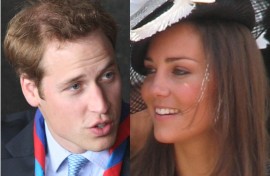
There has been some concern among campaigners that, with the royal wedding held only a few days before the referendum on electoral reform, attention might be distracted from the Big Day.
But there is something appropriate about two ancient features of our constitution being celebrated together. Neither the current voting system nor the monarchy are based on any kind of democratic decision; they both pre-date democracy and are part of the landscape to which British democracy has had to adapt itself. (Without the hyphen in that previous sentence, the monarchy and the First Past The Post electoral system would predate democracy, which might also be true.)
In the 19th century, when new countries were created out of the territories of disintegrating empires in Europe, one of the essential features of each new independent state was a monarchy. Romania chose King Carol, Serbia was led by Prince Miloš Obrenović, and as late as 1905, Norway recruited Prince Carl from Denmark to rule as King Haakon VII.
But after the first world war, the new wave of state creation saw republics established rather than monarchies. It is true that there were short-lived attempts to install German aristocrats in some countries, in Poland and Lithuania, for example, but these were essentially part of the German war effort and were shrugged off once German influence was in decline. Instead, the post-war era was to be republican.
Those countries in central and eastern Europe also exemplified the trend to democracy at the end of the cold war, after the collapse of the Soviet empire. States such as Lithuania that had been incorporated into the Soviet Union resumed independence in 1991 as republics, with no hint of monarchical sentiment, and among all the newly-established democracies arising from the Warsaw Pact and the USSR, not one adopted FPTP as the system for electing its parliament. Each of them, unencumbered by history, chose some other kind of system as being more democratic.
The British, fortunately for them, have not had the experience of occupation and the elimination of their national institutions, which means in turn that the debate about constructing or changing those national institutions is somewhat novel. It is notable that in Scotland, where devolution has been based on such debates in recent years, public opinion is more sympathetic to changing the electoral system for Westminster.
With the prime minister apparently intending to wear a normal suit to the royal wedding rather than a tailcoat, those few days at the end of April and the beginning of May might see a few steps forward for Britain into the 21st century, or at least out of the 19th.
¤ ¤ ¤
Nick Clegg has suggested that the means of choosing the next monarch, being based on male primogeniture, is “a little old-fashioned”. What does he think that a modern method of choosing a head of state would be?
Given that Nick Clegg has positioned himself as Britain’s foremost champion of increased social mobility, there should be plenty of scope here for him to make suggestions.
